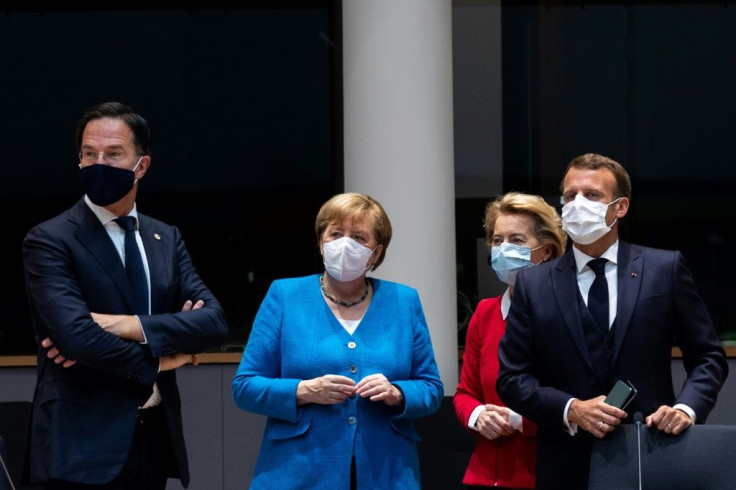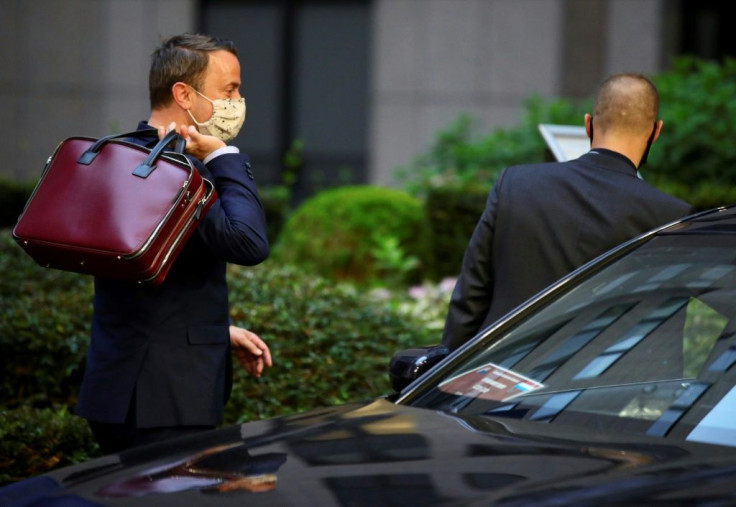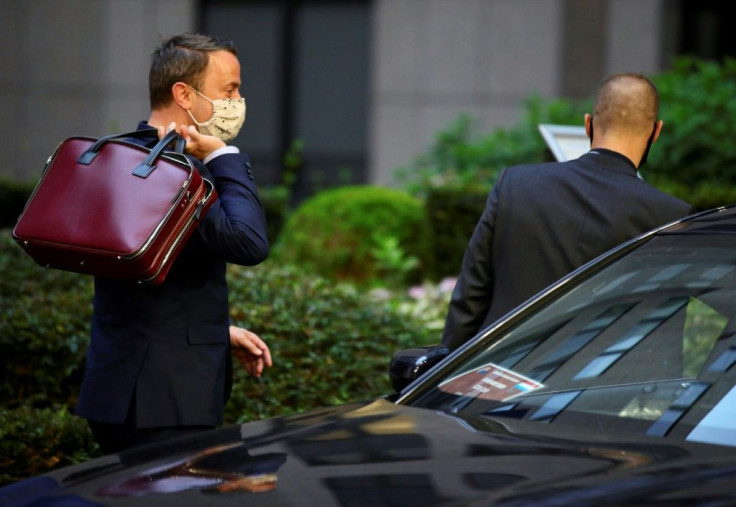Cautious Hopes For Deal At EU Virus Recovery Summit

EU chief Charles Michel said Monday he believed a deal was in reach for a huge coronavirus rescue package, on the fourth day of a summit marked by furious rows about grants for member states.
EU leaders met again behind closed doors to hear the latest proposal from summit host Michel to try to unblock a multi-billion-euro bundle of loans and direct aid to drag Europe out of the recession caused by the pandemic.
After three days and nights of tense haggling without a major breakthrough, leaders voiced cautious optimism that an agreement could be reached -- at least on how big the package should be and how it should be divided.
Michel's new blueprint cuts the grant portion of the deal to 390 billion euros -- down from his initial proposal of 500 billion -- and increases the loan part, according to a document seen by AFP.
The overall total remained at 750 billion ($858 billion).
"I know that the last steps are always the most difficult, but I'm confident," Michel told reporters.
"I think that even if it is difficult, even if it will be important to continue to work, I think and I am convinced that an agreement is possible."

The summit has pitted a coalition of "frugals" -- the Netherlands, Sweden, Austria, Denmark and Finland -- which wants to cut the package back and impose strict rules on how it is used, against virus-ravaged countries like Italy and Spain that are seeking EU support and have the backing of France and Germany.
Finnish Prime Minister Sanna Marin warned there were still "many things to negotiate".
"I am quite hopeful that we get to a solution but there is still much work to do," she said.
As such, European officials and diplomats are expecting another long night of negotiations.

By midnight (2200 GMT) a meeting that was scheduled for only two days will become the longest EU summit since an 85-hour marathon on the subject of admitting eastern bloc members, in the French city of Nice in December 2000.
Once they have agreed the headline figures, the leaders will have to reach an accord on the overall EU budget and details of how the money will be divided -- and what conditions will be attached.
To woo the "Frugals", Michel offered them massive rebates on their contributions to the seven-year budget, which would come at the expense of money previously earmarked for fighting climate change.
This risked singling out Poland that was set to be a major recipient of the cash, as a way to fund its transition from burning coal for energy.
Complicating matters, several mainly Nordic countries, plus the Netherlands, are insisting that all EU funding must be linked to governments' adherence to Brussels legal standards -- "rule of law" in Brussels jargon.
But Poland and Hungary, both under investigation by Brussels for alleged rule of law breaches, have bridled furiously at this, creating another potential stumbling block to a final agreement, which needs unanimous approval.
Polish Prime Minister Mateusz Morawiecki vowed not to allow the EU to put "rule-of law" conditions on Poland receiving cash.
And in a swipe at the Frugals, he complained that the recovery fund compromise was "forced by a group of stingy, selfish countries, which see things very narrowly through their own prism."
The summit came close to collapse on Sunday evening, with a European source saying Michel had managed to convince the frugals to start negotiating the recovery grants only by putting a "knife to their throats" in a tense showdown.
At Sunday's dinner French President Emmanuel acron clashed with the Netherlands' Mark Rutte and Austria's Sebastian Kurz, thumping the table and accusing them of putting the entire European project in danger through "egotism" and threatening to storm off if they did not listen to his and German Chancellor Angela Merkel's advice.
Dutch Prime Minister Rutte told reporters on Monday morning he was in Brussels to take care of his own country, not to make friends, but added that a deal was close.
"I'm more optimistic than I was last night when, at one moment, I told myself, 'It's over'," Rutte told reporters.
© Copyright AFP {{Year}}. All rights reserved.




















